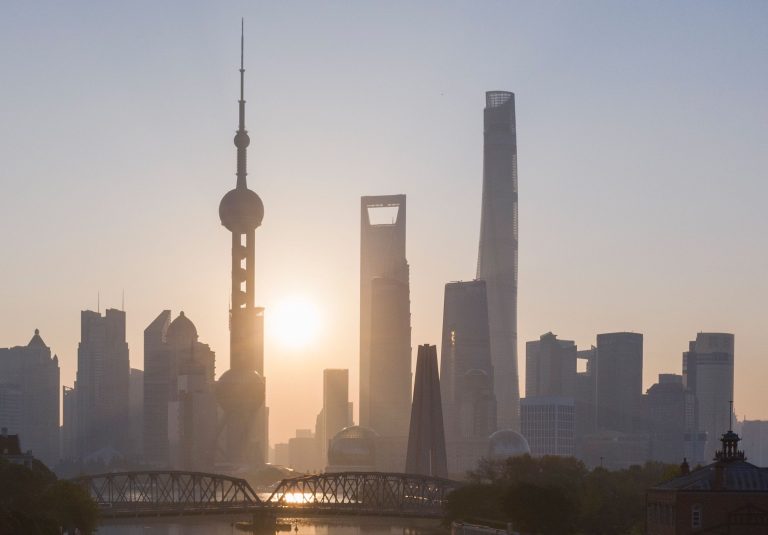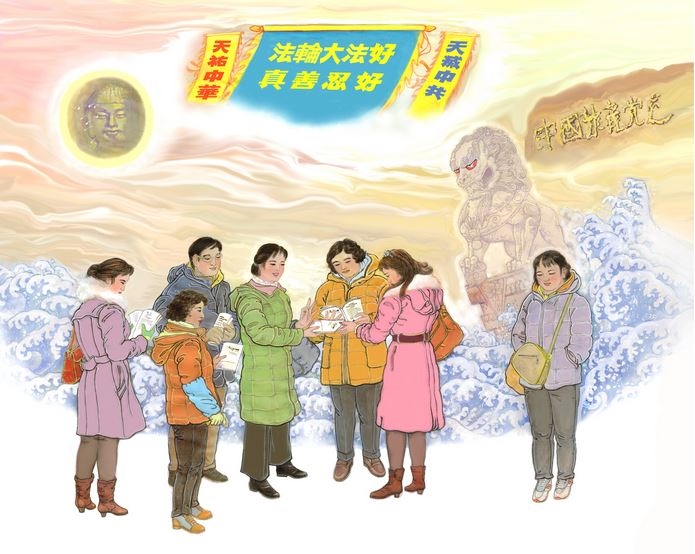News analysis
By Dr. Po-chih Chen
A recent official release from China has raised concerns as it states that the youth unemployment rate has exceeded 20 percent. Many experts believe that the actual proportion of unemployed youth might be even higher. A growing number of young people have chosen to disengage from the workforce, adopting a “lying flat” mentality, while others increasingly rely on their parents, leading to concerns about a generation of professionally dependent children. These trends not only reflect a challenging economic situation in China but also hint at the potential for greater socio-political instability in the future.
China’s economic landscape
For years, China has been likened to a massive bubble, thriving on high hopes for the future. These expectations have drawn in substantial efforts and investments, sustaining consistently high economic growth. When these growth expectations are met, domestic and international investments surge, boosting production capacity and overall economic expansion. This positive cycle has also fueled investments in real estate and various sectors, maintaining an overall sense of optimism despite concerns about authoritarianism, corruption, injustice, and human rights violations.
Yet, with rising unemployment rates and a slowdown in economic growth, particularly against the backdrop of international dynamics, many young Chinese people are losing hope. Additionally, concerns about President Xi Jinping’s potential to monopolize power indefinitely are growing, especially among those who aspire to greater political freedom and democracy. As hope wanes, the structural and psychological underpinnings of China’s socio-political and economic framework are at risk of weakening, potentially leading to a collapse.
Success
You are now signed up for our newsletter
Success
Check your email to complete sign up
Despite issues of inequality, corruption, and a lack of democratic freedoms and rule of law, the Chinese population has generally tolerated these conditions due to optimistic expectations for a brighter future. The prevailing mindset has been one of patience, where individuals believe their time for higher incomes, privileges, and benefits will come. However, declining optimism is shifting this perspective.
As hope dwindles, more people are seeking alternative paths. To maintain stability and prevent further disillusionment, China must reconsider its approach. The focus should not merely be on preserving the existing structure but on designing a new framework that offers its citizens the prospect of positive change, rectifying the current adverse conditions and rekindling hope for the future.
Stock market predicament
China’s financial markets, particularly its stock and housing markets, are experiencing shifts in investor sentiment, leading to potential consequences for the country’s economic landscape. This analysis explores the dynamics of hope and its effects on these markets and examines the challenges China faces in managing these changing expectations.
China’s stock market is highly influenced by investor sentiment, often characterized by optimism or pessimism about future price movements. When investors believe a particular stock will continue to rise, they rush to buy, even if the company’s fundamentals do not support such enthusiasm. This optimism can lead to surges in stock prices, creating opportunities for profit. However, it also fosters a speculative environment where stocks may become overvalued based on expectations rather than actual performance.
Conversely, when sentiment shifts towards expecting a decline in stock prices, investors hurriedly sell their holdings to avoid losses. This rush to sell can trigger a sharp drop in stock prices, as the negative sentiment becomes self-fulfilling. The impact of these fluctuations in investor hope is most visible in the stock market, where the ebb and flow of sentiment can drive significant price movements.
Balancing growth and bubble concerns
Similar to the stock market, the real estate market in China operates under the influence of investor sentiment, particularly regarding expectations of long-term growth and appreciation. In recent times, China faces the potential reversal of its real estate market’s growth trajectory. Housing prices in many major cities are declining, and prominent real estate giants, such as Evergrande and Country Garden, are encountering challenges. Unlike past instances where property bubbles could be reignited in other cities, current issues are nearly universal, making it challenging to prevent an overall property bubble burst.
For years, China heavily relied on real estate investments and development to drive economic growth. However, this approach has led to an overabundance of idle assets, declining property prices, and stagnant investments. Continued support for the real estate industry risks exacerbating these problems, making them even harder to address. China must address the diminished hopes of wealth accumulation through real estate, declining construction investments affecting overall economic growth, and diminishing prospects for economic development.
The repercussions of shifting hopes are not limited to the real estate sector. The broader economy is affected by reduced growth resulting from real estate troubles and global economic uncertainties. The accelerator principle in economics suggests that low growth leads to reduced demand for production equipment, triggering a cycle of declining investments and further dampening economic growth and optimism.
Foreign trade and domestic politics
China’s standing on the global stage is facing increasing scrutiny due to a combination of its foreign trade practices and domestic political developments. The nation is grappling with international criticism and calls for boycotts over what many perceive as unfair trade policies, industrial practices, and administrative interventions. Moreover, China’s deployment of its economic and military might to influence and coerce other nations has triggered concerns. However, the Chinese leadership appears resistant to revising its strategies, instead opting for measures that could exacerbate economic conflicts, such as stringent regulation of raw material exports. This approach raises questions about its effectiveness and potential consequences.
Reflecting on history, there are parallels to be drawn. In the era of the Qing Dynasty, before the founding of the People’s Republic of China, the Opium Wars saw General Lin Zexu’s strategy to withhold tea from the British, under the belief that they were dependent on it. Similarly, there was a misconception that Westerners couldn’t bend their legs, suggesting that they were vulnerable when knocked down. While China’s current confrontational stance toward the West differs significantly from these historical examples, it shares a sense of wishful thinking. If these confrontational approaches fail to yield desired results, there is a risk of public disillusionment.
Politically, both foreigners and many Chinese once held hopes that China’s economic development would be accompanied by a transition to a free, democratic, rule-of-law society that respects human rights. Recent developments, however, have cast doubt on the realization of this vision. Actions such as Xi Jinping’s constitutional amendments to consolidate his power, the handling of dissent, the situation in Hong Kong, and China’s assertive foreign policy have dampened hopes of democratic progress. In response, the international community is on guard against China’s assertiveness, while within China, citizens are torn between seeking opportunities abroad or standing up against corruption, injustice, and authoritarian rule. Even members of the Chinese Communist Party, including senior officials, may find themselves disillusioned by the deviation from their ideals or internal political struggles, contemplating alternative courses of action.
Pursuit of hope
As China navigates a complex global landscape, it raises questions about the role of nationalist rhetoric and ambitions for world domination in shaping the nation’s collective aspirations and morale. While some argue that promoting the idea of China’s global dominance can serve as a rallying point for citizens, the effectiveness of such a strategy remains uncertain.
The notion that China is poised to become a global superpower is rooted in the narrative of the “rise of the East and decline of the West.” This narrative suggests that the U.S.’s longstanding dominance is reaching its twilight, making way for a new world order. However, this narrative lacks empirical evidence and scientific basis, resembling more of a superstitious belief rather than a credible source of hope for informed and rational Chinese citizens.
Belief in this narrative could also have unintended consequences, as it may stoke concerns among other nations about China’s external threats, potentially hindering the nation’s progress. If the pursuit of global dominance were to fail, it could lead to disillusionment and a loss of hope among the Chinese population.
The declining influence of the United States is not necessarily tied to any predetermined two-hundred-year term but is part of a broader global trend towards increased freedom and equality. In this evolving landscape, it is increasingly challenging for any single nation to exert hegemonic control over others. The U.S.’s past influence was based on leadership within international systems, with recognition of other nations’ rights and interests. The shifting global landscape reflects a world with multiple powers and nations coexisting as equals. Attempting to defy this trend and impose a new form of global hegemony could prove detrimental to China and its people.
China currently faces economic challenges, including the so-called middle-income trap, which poses obstacles to rapid development. As a middle-income country, China must adapt to new development strategies that respect international norms and the rights of its own citizens. The pursuit of high growth and global dominance may not be realistic or productive goals. Instead, China’s focus should be on fostering hope for its citizens by offering a high-quality life characterized by freedom, equality, and prosperity, while assuring neighboring nations of its commitment to peaceful coexistence. These are the new hopes that China should seek as it continues its development journey in a changing world.















